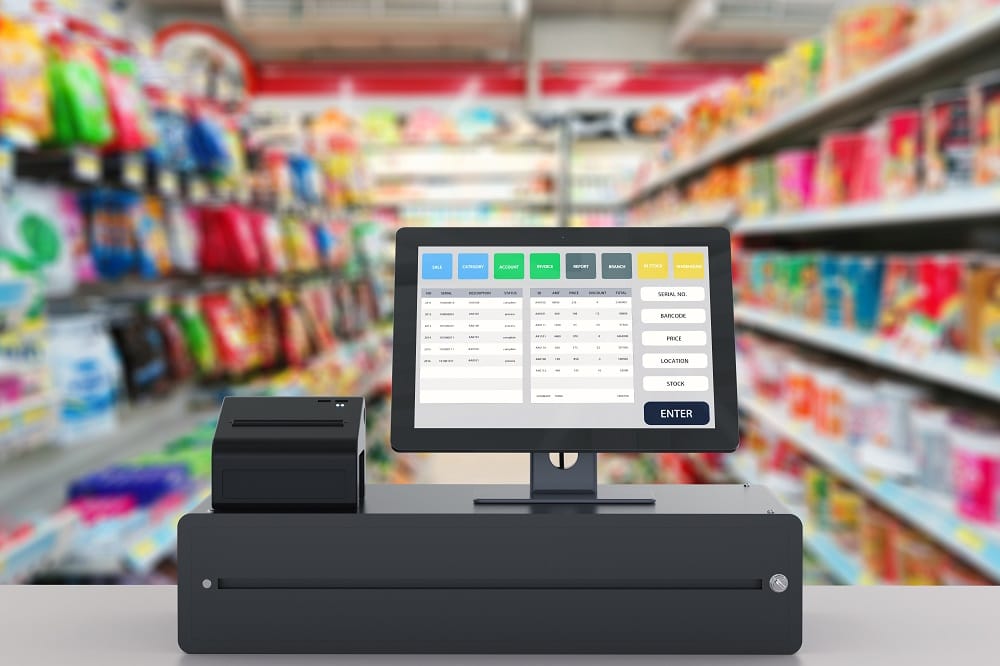Have you ever been in a supermarket and felt like you were on a casino? That’s because, in most cases, you were! It doesn’t matter if you work at the register or not. At supermarket checkout stations, clerks handle payments, reports are monitored and inventory levels are constantly changing.
You don’t get paid enough, you’re not paid enough and you’re not sure how your position is listed on the corporate ladder.
Profitable method:
In many grocery stores, the POS system is the most efficient and profitable method of maintaining adequate levels of staff. The way it works is quite simple.
At the end of the day, a computer is called out by a sales associate to count the money that has been paid out for that particular item. The process is automated and has revolutionized cash management in the retail industry.
With a POS system for supermarket, a computer manages the inventory, takes reports from the shelves and calculates the exact amounts of products that can be sold.
Having an efficient POS system is important for a number of reasons. Not only is it necessary to meet specific requirements by law, but supermarket-specific features can make the difference between an effective system and one that robs money from the bottom line.
For this reason, here are some supermarket POS system specific features to look for.
Comprehensive range of services:
The best POS system is going to offer a comprehensive range of services. These services include an integrated payment processing system. This will allow customers to pay for the items that they buy in a single application.
In addition, it will require minimal software downloads and it will automatically deduct charges from the account when they are being paid by an authorized user.
Another service that any good supermarket system should provide is store and forward systems integration. Under this service, the system will add an area code to the checkout bar that will direct customers through to the cash register.
Any time a customer moves from their point of purchase to the checkout, they will be charged accordingly. The best systems do not have limitations on this service and it will allow the cash register to be completely integrated with the rest of the business.
Waiting time feature:
When it comes to the most important part of any supermarket POS system, you need to make sure that it offers a specially designed waiting time feature. Wait times are important because they affect the amount of sales that a grocery store will experience.
If customers have to wait to get their items, they are less likely to purchase anything. A specially designed waiting time system should be able to reduce or eliminate Wait Times by moving customers through quicker to the cashier.
Some supermarkets have taken the idea of automated inventory management even further. The biggest problem with automated inventory management is the accuracy of the system. This requires human intervention to ensure that items are actually in the store.
However, a supermarket owners can use a specially designed POS system to ensure that all retail merchandise is in place and ready to be purchased.
Inventory tracking equipment:
It is possible to reduce inventory levels with any good modern system. Any good system will be able to integrate with inventory tracking equipment to ensure that retail shelves are clear at all times.
The only real limit to this is the amount of manual work required to input the correct data into the inventory management system.
In some cases, the most efficient way to increase efficiency is to install a system that allows users to enter detailed information about each product.
In these cases, the supermarket software needs to be specially designed. When the user enters the required information, the system should automatically calculate the amount of stock that is available for sale and display it on the screen.
A visual inventory management module is also highly useful.
Omni-channel grocery:
The best supermarkets are using omni-channel grocery and retail point of sale systems. This is because the omni-channel allows the retailer to interact directly with the customer. This in turn allows them to change product offers or even present options to the customer.
A supermarket with an omni-channel grocery POS system is better able to predict how the products that are in the store will perform. This means that the retailer will be able to provide better service.
Because they know exactly how well certain items are performing. These are two highly important factors for efficient inventory management.
Conclusion:
Supermarkets without a point of sale system would almost certainly be missing out on an invaluable resource. They must ensure that they have an effective system in place for tracking inventory and sales, as well as accessing information about sales trends.
When an organization can more easily access this type of information. They are in a much stronger position to make smart decisions about how to run their business.
A supermarket POS system can give any business owner insight into how well they are doing, and this allows an entrepreneur to make quick decisions about improving their operation.






